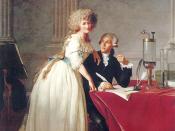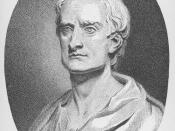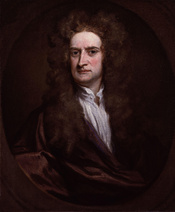Scientific Revolution
Section 1: New Scientific Ideas
- During the late 1500's and early 1600's, scholars and scientists increasingly realized the importance of experimentation and mathematics to scientific advances. This realization helped bring about a revolution in science.
- The great Italian scientist Galileo stressed the need for carefully controlled experiments. In his research, Galileo used observation and mathematical analysis as he looked for cause and effect relationships among natural events.
- He recognized that experimentation could lead to the discovery of new principles. For example, Aristotle had taught that the heavier an object is, the faster it falls to the ground. Galileo questioned that idea. He set up experiments to find the true laws of falling bodies and proved that Aristotle was wrong.
- Through experimentation, Galileo discovered many basic principles of mechanics.
- Galileo also saw the need to extend the range and power of the human senses with scientific instruments.
He improved such instruments as the clock and telescope.
- With the telescope, Galileo found convincing evidence supporting Copernicus' heliocentric theory.
- Another remarkable scientist of the 1600's was Sir Isaac Newton of England. Newton used the findings of others to develop a unified view of the forces of the universe.
- In his book Principia (1687), he formulated a law of universal gravitation and showed that both objects on the earth and the heavenly bodies obey this law. Newton's studies of lenses and prisms laid the foundation for the modern study of optics.
- Newton and Gottfried Wilhelm Leibniz, a German philosopher, independently developed a new system of mathematics, calculus.
- The scientific revolution also extended to many other areas of science. Modern physiology began in the early 1600's with the work of William Harvey, an English physician.
- Harvey performed careful experiments and used simple...


